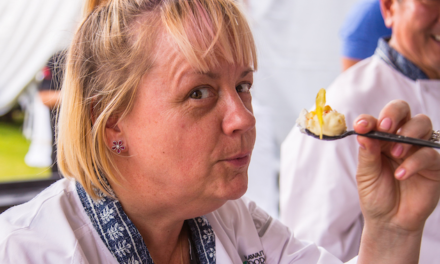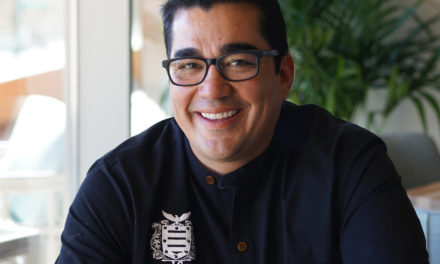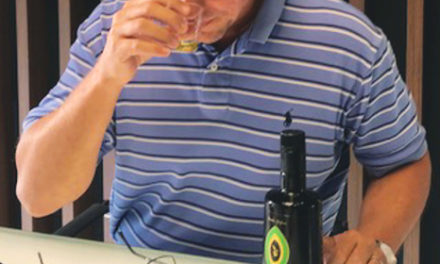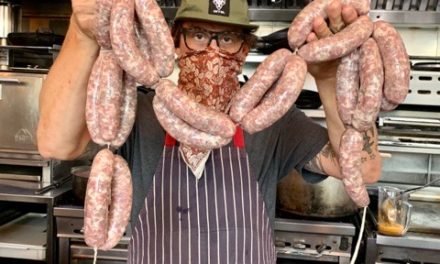COVID-19 has disrupted the entire infrastructure of the food business — from restaurants and food supply, to behavioral changes and the job market. The historic impact on the industry that employees more than 8 million individuals has been catastrophic, with an uncertain future ahead.
For this COVID Conversation, Hashi sat down with owner of Ha Coffee Bar to discuss the mission of the nonprofit coffeehouse and its experience during the pandemic.
Since the interview, Ha Coffee was forced to close its physical location, but the mission lives on.
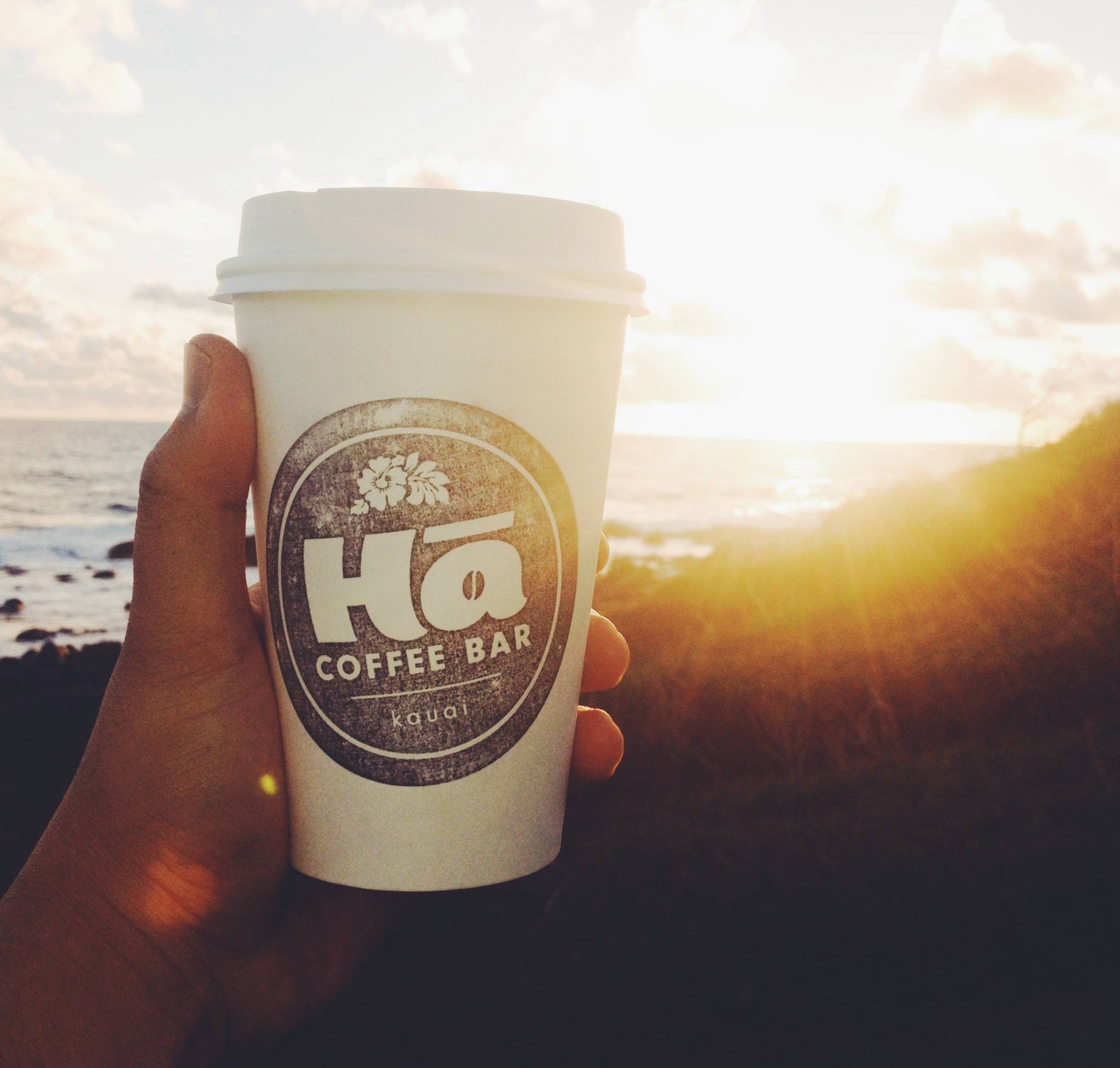
Photo: Donovan Riopta/courtesy of Ha Coffee/Facebook
“It is something that a group of us built by planting the seeds and watching things grow — even in the middle of COVID. That’s what gives me joy at the end of the day.”
Ha Coffee Bar, a nonprofit coffee shop in Lihue on Kauai, prides itself on being a gathering place for the community. When COVID-19 hit, the company — like many businesses across the state — were forced to close its doors.
The owner Jeff Adams was optimistic at the time of this interview with Hashi in September 2020. Due to its community outreach, the coffeehouse quickly grew to be a place to gather, work and meet for the Kauai neighborhood after opening just seven years ago. In the face of COVID-19, the organization struggled with rent deferment negotiations with the landlord and was forced to close its doors in October 2020. Continuing its mission to serve its customers, Ha Coffee Bar has partnered with Kauai Beer Company to pour coffee in the morning hours for the community.
HASHI: Aloha Jeff! We know your time is valuable and you’ve been busy doing so many things. Thank you for making time for us. Tell me about Ha Coffee
JA: Our goal is in our name, Ha Coffee, which means breath of life. We wanted to serve the community in a sustainable way, in a resilient way. We wanted to be able to breathe life into the community — not because it needed life, but because we wanted to contribute.
We opened up in October of 2013 and although we underbudgeted for what we were supposed to make, we still made budget. Before COVID, we’ve really only lost money for two months in seven years.
We started by figuring out where we could serve the community and where we could help. We know provide our space for free community events. We like to think of ourselves as a local, non-beer-drinking pub, so a lot of groups meet here during the day and evenings. Our goal is to contribute in any way we can, so we’re always out in the community.
HASHI: Can you tell us a bit about how Ha Coffee got its start?
JA: Well that’s a bit of a long story! We were in Washington State when there was a catalyst for us to make a change for where we were at in life. Strangely enough, before we moved here, we had friends who used to own a timeshare in Kauai — one of the first timeshares in all of Hawaii. They were in the process of selling it, and they offered us to stay there for a good rate.
When I came to Kauai, it was confirmation that it was where we needed to be. Our goal was to start a nonprofit. Nonprofits spend a lot of their time and resources raising money, which means that you’re not fully able to dedicate yourself to doing the things that you truly care about as an organization. We wanted to create something that was sustainable and resilient. Sustainable means that you get to zero every year, and you have nothing else to show for it. That’s fine, but we wanted to also create something that would be functionally strong, so that we can continue to operate in a way that is functionally strong, even in spite of circumstances like we’re finding ourselves in now with COVID.
In 2012, we actually started out with about 20-30 different type of businesses and whittled it down. At the time, there was basically one Starbucks in Lihue, and that was really it. We didn’t want to come in a displace or take money away from other businesses. We weren’t going to build a bakery, because there’s a billion local bakeries. Then after some more assessment in the Fall, our angel funder was able to donate the startup funds. So we began the process of building and buying equipment for a coffee shop, and finally moved here in 2013.
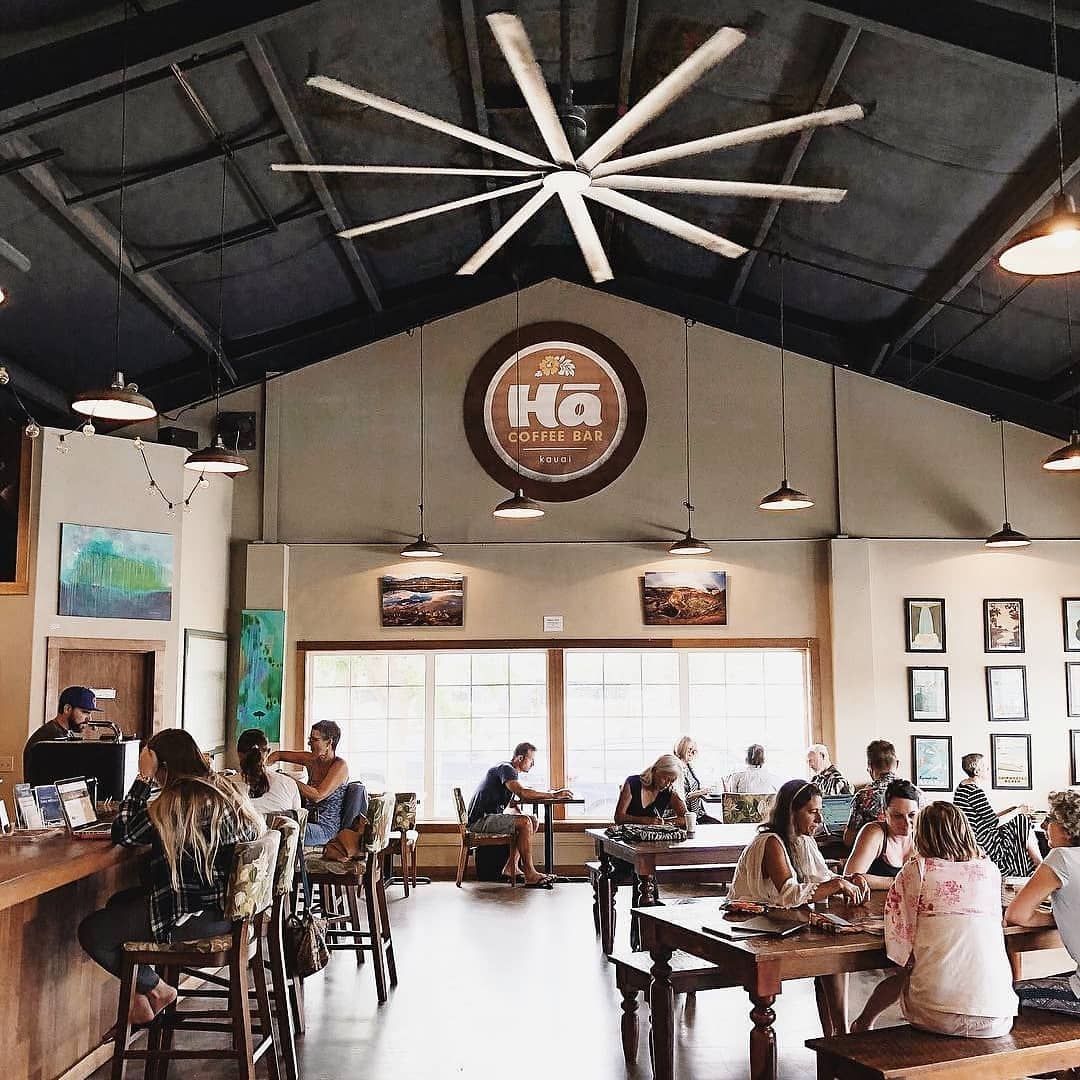
Ha Coffee Bar served as a gathering place for the Kauai community. Photo: @majki/courtesy of Ha Coffee/Facebook
HASHI: Of course, this is a rough time for every business and individual. How has COVID-19 affected your business(es)?
JA: Since we’re on Kauai, we didn’t have the same lockdown restrictions as Oahu. In April, May and June, we were doing takeout only. When they opened things up in June, we were able to do more. The first couple months were really, really hard. Takeout is not what we’re known for — we’re known for a place to gather — so we were doing about 25%. Now that immediately jumped up when we were able to open again.
How do you keep Ha Coffee operating as a nonprofit, especially during the global pandemic?
JA: Everyone who works here makes a living wage, provide healthcare, and anything we make beyond that, we reinvest either on the projects or in the community, as a whole. We now have a coworking space next door. As I mentioned, our goal was always to build community. You might realize this with HFWF, but community isn’t exactly something you can generate. Instead you have to create an environment and allow it to thrive. Create an open space, provide the environment, create the atmosphere, provide places for people to grow and then make what they need to make it.
It’s still thriving — we’re still here, despite COVID. We’re not making as much money as we’re used to making, but the local support has been strong in the midst of these troubling times.
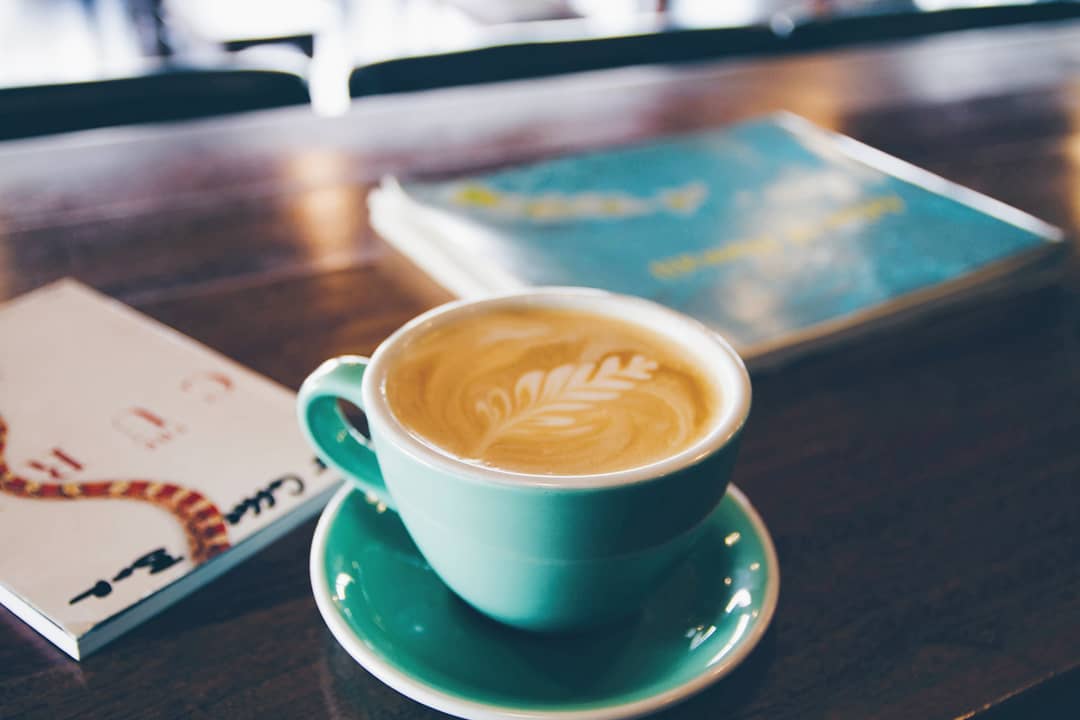
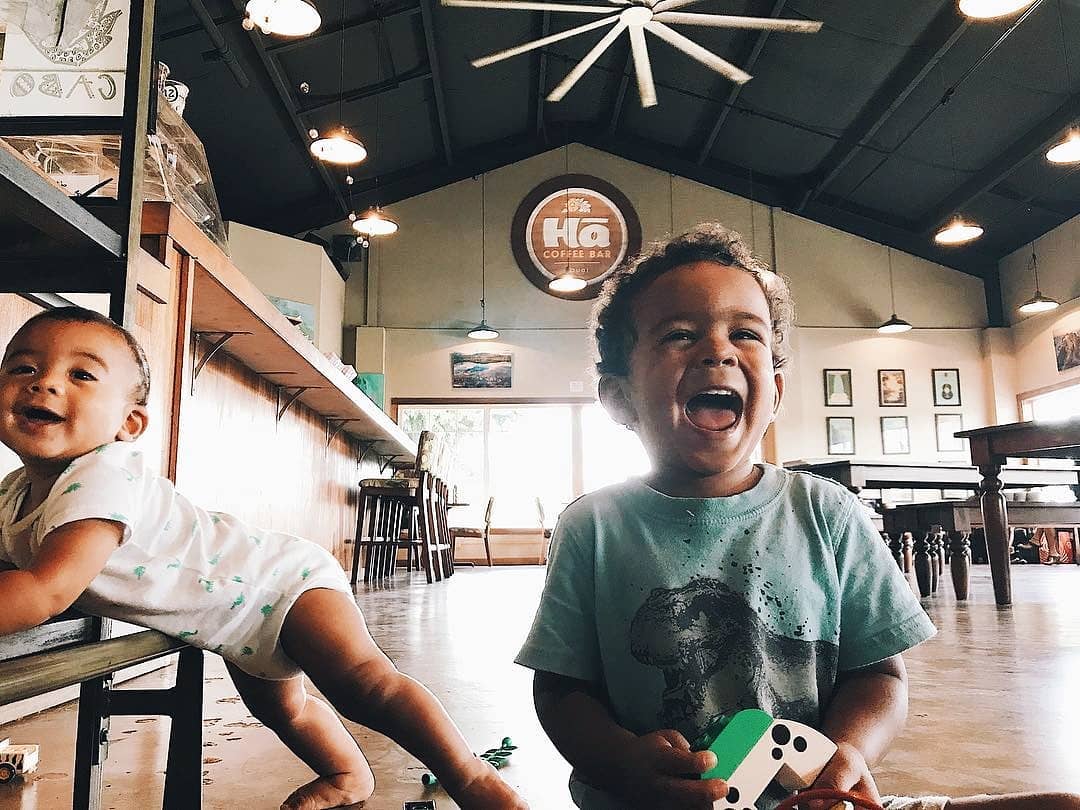
Photos: courtesy of Ha Coffee/Facebook
HASHI: With so many people working from home, has Ha Coffee and the coworking space been somewhere for people to do that?
JA: The situation has been a bit of a mixed bag. For Ha, we’ve had to be strict about how many people and how long people are here because we’re operating at 50% capacity. We appreciate them wanting to be here, but we’re asking them to be mindful. Since we are a gathering place, we want customers to be able to sit and enjoy themselves — even if it is for a short time. Most people have been careful and mindful.
The coworking space, which formally opened in January 2019, has seen a little bit of growth during this time because people are tired of working from home. We lost some customers from other islands who travel to Kauai and host meetings here.
HASHI: You’ve mentioned Ha Coffee being a gathering space. It seems that the next door coworking space, Kuleana.work, fits in nicely with that mission.
JA: We looked at it as a bigger project. Originally, we saw the need in the community for some other things, like community kitchens, but the space next to Ha Coffee became available just at the right time when we needed it.
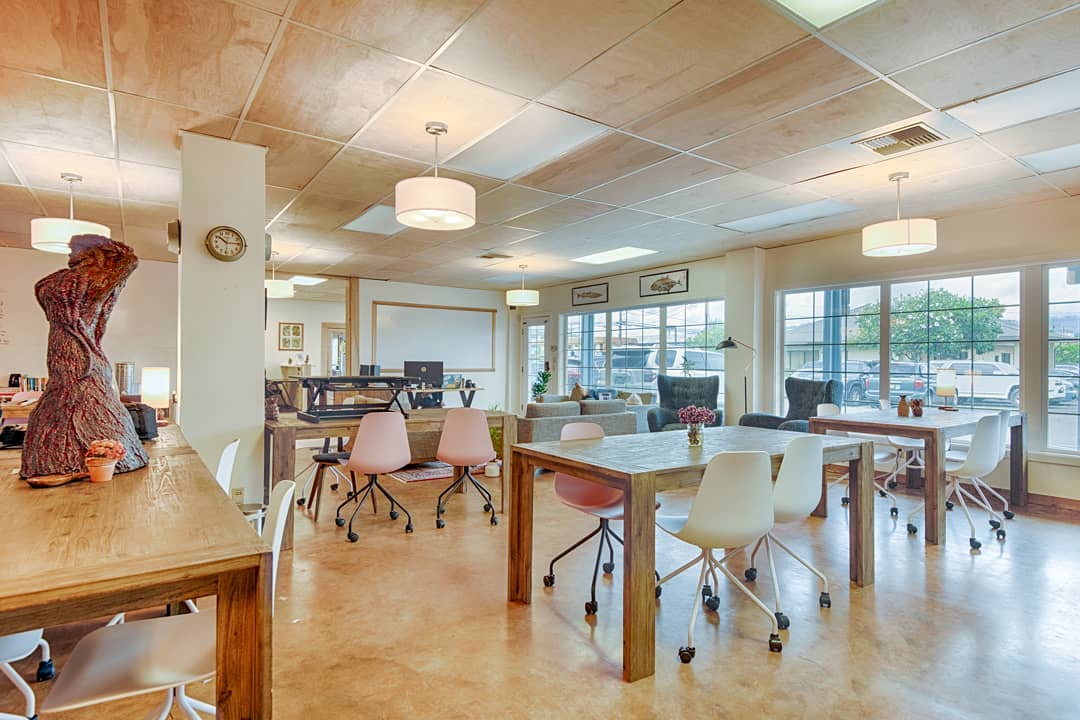
In 2019, Ha Coffee opened a co-working space next door, Kuleana.work, with the same mission. Photo: courtesy of Ha Coffee/Facebook
And lastly, we have some quick fire questions for you! What’s the best part about your job?
JA: Seeing the community that has been built. Seeing people gather together in this space, whether it be the coworking space or Ha. Being able to see it come together and come to fruition. It is something that a group of us built by planting the seeds and watching things grow — even in the middle of COVID. That’s what gives me joy at the end of the day.
What’s your favorite coffee blend right now?
JA: The stuff that comes out of Kau Valley from Big Island.
Name your one “must-try” restaurant or dish in Hawaii.
JA: There’s a place called Keoki’s – a hole in the wall in the Lihue in the industrial park. We buy banana bread from there. They serve a fried rice loco moco, inexpensive with gravy, two eggs on top. They serve a lot of local people and serve that community — you’re not seeing a lot of tourists there. My other recommendation is Mark Place’s. There’s a lot of mom and pop placing serving good food.
A friend is visiting Hawaii for the first time. What is the one thing you would tell them to put on their itinerary?
JA: For Kauai, visit the Waimea Canyon. I always send visitors there no matter how long they are in town. Go there and visit Kokee Lodge, which is run by Jim Valentine, producer of Rin and Stimpy) runs Kekea Lodge (same roasters).
Best indulgence — dessert, dish or drink?
JA: Dish — I like a good hamburger. Sometimes a good hamburger can be hard to find.
